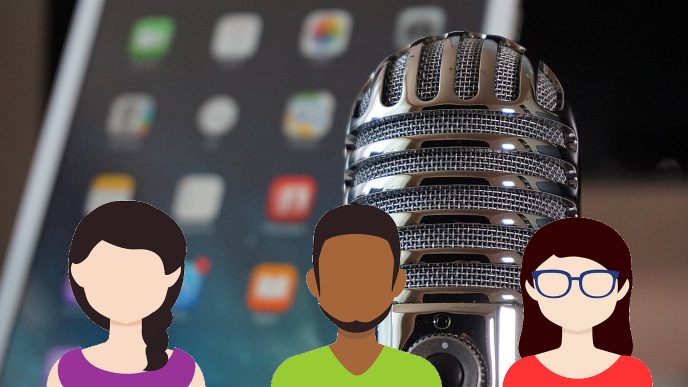Maybe you enjoy listening to podcasts while taking care of chores at home or while working out at the gym. Maybe you have a favorite blogging podcast or entrepreneur podcast, finding some keen insights and enjoying some much need motivational boosts along the way. That’s great. But, what if you wanted to start a podcast of your own.
A friend of mine is an instructor at a local school, and she holds workshops on online media and similar kind of topics. She asked if podcasts fit better in a “blogging” module or in the “video” module, the latter of which would focus mostly on YouTube. In reality, podcasts fit somewhere in between; there are more technological requirements than blogging, but not as much as you would need for high production value on YouTube. In fact, you can get started with podcasting basically for free.

After you have your equipment (a decent USB microphone can be found for about $50), you need to find a place to host your podcast. Contrary to popular belief, you don’t really “host” your podcast on Spotify or iTunes. Not really. Instead, those are the distribution platforms. The actual audio files need to live somewhere and the typical shared hosting plans you might use for your blog probably aren’t going to be up to the task. So, where can you go? Here are three prominent options, each with pros and cons.
SoundCloud
On some level, you could say that SoundCloud is the YouTube of the audio world. You get to host your audio files here for free and the audio can then be embedded on websites with a built-in player. And while it may be more common to find original songs and other types of music on SoundCloud, it’s also a very viable platform for podcasts.
In fact, SoundCloud has a whole how-to-article on hosting a podcast on the platform. You’ll need to set up an account there, of course, taking care of the usual tasks like uploading a profile image, adding a description for your podcast (in your profile bio) and adjusting your content settings. From there, all you really have to do is upload your audio file and your podcast will be live. After that, you’ll need to grab the RSS feed and submit it to the various services, like Stitcher and iTunes.
You can upload to SoundCloud for free. Optionally, you may choose to upgrade to the Pro or Pro Unlimited plans for additional features, like more upload time, scheduled releases, and more advanced embed controls.
Anchor
Like Soundcloud, Anchor also allows for free hosting. But whereas SoundCloud’s free plan has limited storage, Anchor offers unlimited free hosting. They say that their “mission is to democratize audio, making sure podcasting is accessible to everyone on the planet.” They really made this as easy to do as possible.
In fact, if you really want to keep it simple, you can download the Anchor app on your phone and record your podcast right from there. The mobile app also has built-in collaboration, so you can get your guests or cohosts to record with you right from within the app; it does mean that they have to have the app too. The episode builder and editing tools are super handy. And, there’s also one-click distribution to get your podcast out to major platforms like Google Podcasts and Overcast.
Another big selling feature for Anchor is that it has a built-in sponsorships program. This isn’t the same as AdSense in that ads automatically populate available inventory. Instead, they look to match potential brands with the right podcasts; then, you record your own custom ad and insert them into your episodes. You get 70% of the revenue. It’s US only for now, but they “hope to expand globally.”
Libsyn
It’s true that both Anchor and SoundCloud are great places to start your podcast and you might choose to stay with them over the long haul. At the same time, if you’re looking for a more advanced experience with even greater flexibility for a growing audience, you’ll need to invest in some paid podcast hosting. This is just the same as paying for web hosting for your blog compared to going with a free service.
There are many options in this space, and one of the biggest is Libsyn. The platform has been around since 2004 and it’s meant to be comprehensive in providing not only hosting, but also distribution and monetization. If it’s good enough for Dan Carlin’s Hardcore History and The Way I Heard It with Mike Rowe, surely it’s good enough for you. The point here is that you’re in total control, including options for premium content subscriptions and opt-in advertising, as well as detailed audience stats.
Libsyn podcast hosting plans start from $5 per month for unlimited audience and 50 MB of monthly storage. It’s $2 extra if you want basic statistics, and another $2 if you want to use your own domain.
Do you have a podcast? Tell us about it in the comments below. Where do you host it and why?
